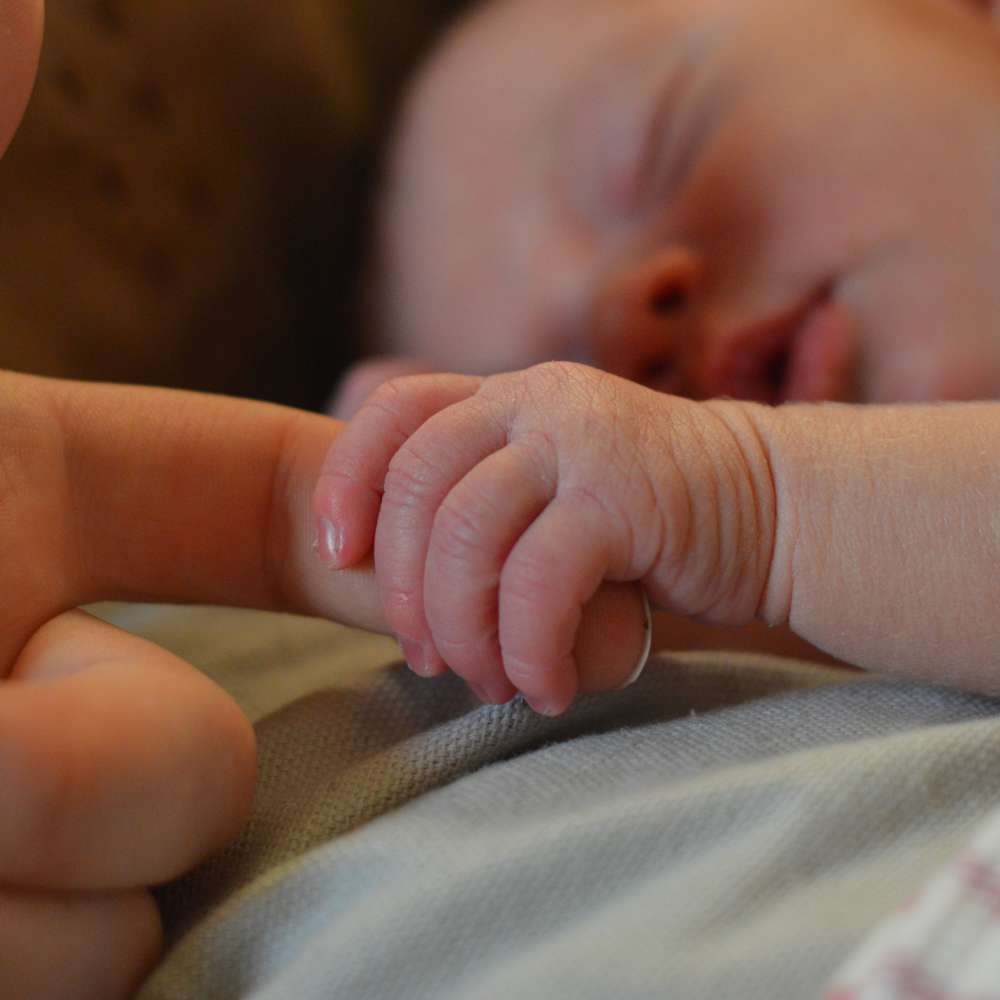How to improve infant naps: 5 actionable steps

How’s your baby sleeping during the day? Not only is sufficient sleep vital for boosting a child’s mood and immunity, but those breaks during the day can do wonders for your well being too. Infant naps can also have a huge impact on night sleep — children who nap poorly tend to wake more at night.
Many parents feel overwhelmed when it comes to tackling their baby's naps. It can require some time and effort, and can be especially tricky for parents with multiple children. If you're ready to work on your baby's naps you can take advantage of these helpful hints - you've got this!
IN THIS ARTICLE:
Here are our top tips to improve naps
Here are our top tips to improve naps:
1. Regulate your baby’s sleep schedule with a consistent morning rise time
Once a baby is 3 months old, we recommend working on a predictable morning rising time within the same 30-minute window each morning. Light exposure in the morning plays an important role in regulating your child's circadian rhythm, which can lead to more predictability in your baby's sleep-wake cycles.
When a child sleeps in much later, they may end up skipping their next nap, which can then have a domino effect on their sleep schedule throughout the day. Note: If they're ill, then most rules go out the window — they need whatever rest they can get!
2. Follow an age-appropriate nap schedule
We don’t need to be ultra rigid about nap times. Keep in mind, however, that younger babies typically nap better if you plan sleep according to their sleepy cues and awake windows, rather than a set time on the clock. For example, a 2 month old wake window is generally around 1.25 - 1.75 hours. Once a baby is down to two naps (usually by 8 - 9 months), they may be able to handle a “by the clock” nap schedule with set nap times if that suits your family.
Aim to spread the naps out evenly throughout the day and limit each individual nap to two hours (unless your child is down to one nap a day, in which case target 2 - 3 hours of sleep). When we let a baby sleep for long periods during the day, this can lessen sleep for other naps or night sleep and create a cycle of overtiredness.
3. Rule out hunger as a cause of short naps
When babies have short naps, hunger can be to blame. We see this a lot when babies fall asleep while eating and don’t get a full feed. They will then wake early due to hunger. Likewise, an “eat-play-sleep” schedule that may have worked well for a newborn can cause older infants to wake from hunger as their periods of wakefulness get longer.
Adjusting the timing of feedings can help rule out hunger as a contributing factor if you’re dealing with short naps. Consider moving feedings to about 15 - 30 minutes before you plan to put your baby down for a nap during the day. This can help ensure that your baby gets a full feeding in without falling asleep during the feed.
4. Transition to nap time with a consistent routine
Help cue that it’s time to move from playtime to sleep time with a regular routine. We recommend moving any feeds to the beginning of the routine so that your baby is more likely to finish the feeding and less likely to fall asleep in the middle of it.
Nap routines are often shorter versions of the child’s bedtime routine. Curious about when kids stop napping, too? Give our article a read!
5. Provide the opportunity to strengthen independent sleeping skills
Once a baby is 3 - 4 months or older, how they fall asleep can have a big impact on the quality of their sleep. Helping your baby learn to fall asleep without parental help is often the most important step to improving day sleep.
Holding, feeding, or otherwise helping your child fall asleep can be necessary when they’re newborns. As they get older, however, this help can create a sleep onset association that disrupts sleep and can contribute to short naps. When an infant can fall asleep in their own sleep space without parental help, this can ensure that they won’t need to be held for every nap. It can also help babies link sleep cycles, which can lead to longer naps.
We recommend giving your child the opportunity to fall asleep on their own, in their own sleep space, from an awake state. Start with the first nap of the day, which tends to be the easiest. Keep in mind that this can be a big change for some babies and they’ll need plenty of practice before they get the hang of this new skill.
We’re here to help!
Please know that you’re not alone if you’re finding that day sleep more challenging than night sleep. Naps can be trickier than night sleep since children don’t have the same internal drive to fall asleep.
About the Author: Amber LoRe is a pediatric sleep consultant with Huckleberry. She's always considered herself an advocate for children - from early jobs in daycare to her work as a family law attorney. She's been helping families get more sleep since 2011 and never gets tired of hearing success stories from happy clients. Amber lives outside NYC with her husband, their two awesome children and their rescue pup.
Note: The content on this site is for informational purposes only and should not replace medical advice from your doctor, pediatrician, or medical professional. If you have questions or concerns, you should contact a medical professional.



